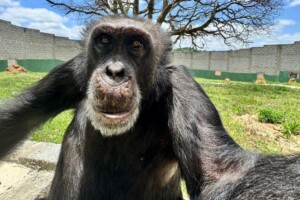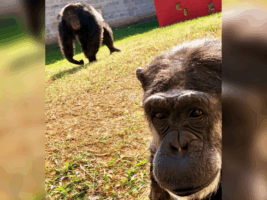62% of North-Americans are in favor of Animal’s Rights

In 2008, according to Gallup agency, 25% of North-Americans believed that animals should have the same rights as humans. In 2015, one-third comes to believe in this. In addition, 62% of North-Americans now also believe that animals should have some legal protection, that they should be free from people abuse and exploitation, but without getting to have the same rights as humans.
In less than seven years the consciousness of the American population has changed and this should be the reason why SeaWorld Park in San Diego announced that, for the next year, acrobatic shows with whales will cease. Circus Ringling Bros and Barnum Bailey, the largest in the world, even with a considerable collection of animals, also announced that its elephants will be retired in 2018 to a facility in Florida and that they will not work in the shows anymore.
The animal industry in Hollywood, which for decades maintained an intensive exploitation of great apes, big cats, bears and other large specimens, realized that the public has changed their interest, and that now it is much cheaper to use the technological resources of computer graphics to present the same animals that were once forced to work in all kinds of entertainment.
Steven Wise, who runs the NGO Nonhuman Rights Project and is fighting in courts via Habeas Corpus writs so that the right to several chimps are recognized and respected, said: “People know more about all of this now. Things rocket around the world in a day — things that used to take years to communicate to the public.”
The whales of San Diego will not work anymore, though, they will still be prisoners in small water tanks. That is the moment to SeaWorld – which made a lot of profit with their work – to put in practice an efficient and fast program to return them to the sea, from where they should never have been taken out.
Dr. Pedro A. Ynterian
President, GAP Project International

 Español
Español
 Português
Português








